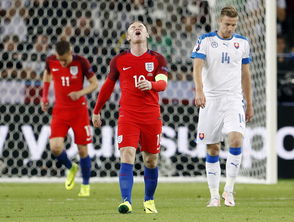欧洲杯小组第三如何落位
148
2024 / 05 / 03
In the UEFA European Championship, commonly known as the Euros, the format often leads to questions about how teams are ranked, particularly when it comes to the group stage. Specifically, the scenario of determining the rankings of thirdplaced teams in the group stage can be a bit intricate. Let's delve into the criteria and guidelines set by UEFA for ranking teams in such a scenario:
The UEFA Euro Cup group stage typically consists of six groups, each comprising four teams. Over the course of three matches, each team plays against the other teams in its group. Following these matches, the top two teams from each group advance to the knockout stage, while the remaining four spots in the Round of 16 are filled by the highestranked thirdplaced teams.
1.
The primary criterion for ranking thirdplaced teams is the number of points earned in the group stage matches.
Teams are awarded three points for a win, one point for a draw, and zero points for a loss.
2.
If two or more teams have the same number of points, their ranking is determined based on goal difference.
Goal difference is calculated by subtracting the total number of goals conceded from the total number of goals scored.
3.
If teams are still tied after goal difference, the number of goals scored becomes the next tiebreaker.
The team with the higher total number of goals scored in the group stage matches is ranked higher.
4.
In the event that teams are still tied after considering the above criteria, fair play conduct comes into play.
Fair play conduct is assessed based on the number of yellow and red cards received throughout the group stage matches.
Teams with fewer disciplinary points (fewer cards) are ranked higher.
5.
If, after all the above criteria are considered, teams are still tied, the final tiebreaker is a drawing of lots conducted by UEFA.
This method is purely based on chance and is used as a last resort to determine the ranking of tied teams.
1.
The primary emphasis should always be on winning matches to secure advancement to the knockout stage.
Accumulating maximum points ensures a higher ranking and increases the chances of progressing to the next round.
2.
While aiming for victories, teams should also focus on maintaining a balance between scoring goals and avoiding conceding them.
Goal difference can often be a decisive factor in determining rankings, especially in closely contested groups.

3.
Disciplinary actions such as yellow and red cards can have implications beyond the immediate match.
Maintaining fair play conduct not only reflects positively on the team but can also be crucial in case tiebreakers are needed.
4.
Despite meticulous planning and execution, there might still be instances where teams end up tied on various criteria.
In such situations, teams should be mentally prepared for the possibility of a drawing of lots and focus on factors within their control.
In conclusion, the ranking of thirdplaced teams in the UEFA Euro Cup group stage involves a structured evaluation based on multiple criteria, with the primary focus on points earned, goal difference, and goals scored. While teams strive for victories, they should also maintain discipline and be prepared for uncertainties in the ranking process.
